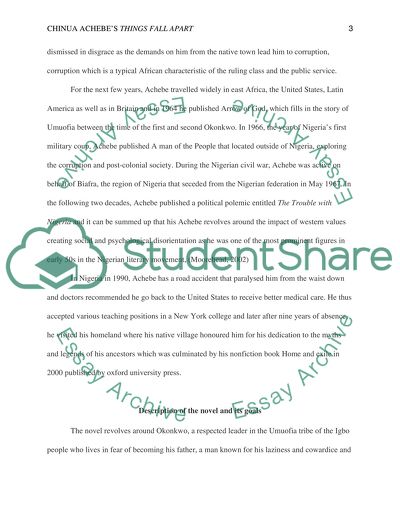Cite this document
(“Things fall apart (the African trilogy 1) by Chinua Achebe Admission/Application Essay”, n.d.)
Retrieved from https://studentshare.org/anthropology/1497911-things-fall-apart-the-african-trilogy
Retrieved from https://studentshare.org/anthropology/1497911-things-fall-apart-the-african-trilogy
(Things Fall Apart (the African Trilogy 1) by Chinua Achebe Admission/Application Essay)
https://studentshare.org/anthropology/1497911-things-fall-apart-the-african-trilogy.
https://studentshare.org/anthropology/1497911-things-fall-apart-the-african-trilogy.
“Things Fall Apart (the African Trilogy 1) by Chinua Achebe Admission/Application Essay”, n.d. https://studentshare.org/anthropology/1497911-things-fall-apart-the-african-trilogy.


